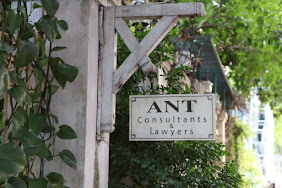The Evidence Collection Convention is a multilateral Hague
Conference convention that was signed on March 18, 1970 and went into effect on
October 7, 1972. The objective of the Convention is to facilitate the
collection of evidence and to harmonize the methods of evidence collection
between States.
On May 3, 2020, Vietnam
became a party to the Convention on the Collection of Evidence Abroad. After
becoming a member of this Convention, Vietnam only applies and accepts requests
for evidence collection by a written request as described in Chapter I of this
Convention. As a result, Vietnam does not use the process of gathering evidence
carried out by a diplomatic officer, consular officer, or authorized person in
Chapter II of the Convention.
Procedures for
collecting evidence between the United States and Vietnam under the Hague
Convention
Both Vietnam and the
United States are parties to the Convention on Collection of Evidence. However,
since Vietnam only participates in collecting evidence in writing, the United
States has to collect evidence in Vietnam via this method.
Step 1: The U.S. Agency
sends a written request to collect evidence to the Ministry of Justice of
Vietnam
In the settling a case
involving a civil or commercial field, the party can request the Court to
assist in collecting evidence in Vietnam. The US judicial agency will issue a
written request for evidence collection to the competent Vietnamese agency
(specifically, the Ministry of Justice). This document must ensure that follow
the contents of Article 3 of the Convention, and must be written in Vietnamese
or accompanied by a Vietnamese translation and delivered via postal service.
Step 2: A written
request for evidence collection is received by Vietnam’s Ministry of Justice
The Ministry of Justice
of Vietnam will receive the request for evidence and decide whether or not to
comply with the request for evidence collection. In the event of a refusal, the
Ministry of Justice of Vietnam must clearly state the reasons specified in
Article 12 of this Convention. For example, the request is not within the scope
of the Convention in the civil and commercial fields, or the implementation of
which may be detrimental to the sovereignty and security of that country, etc.
Step 3: The Ministry of
Justice requests competent agencies to collect evidence
After having sufficient
grounds to handle the request of the U.S. Agency, the Department of Justice
will send a written acceptance of the request to collect evidence to the United
States and forward it to the competent domestic agency for collection evidence
process. The Vietnam agency will notify the U.S. Agency of the time, place, and
procedures to collect evidence to be followed so that relevant parties and
their representatives can be present.
When making the written
request, a judicial officer from a U.S. agency may be present, and this
presence has to be approved by the Vietnam Agency. Further, according to
Article 11 of this Convention, the person being asked to provide evidence has
the right to refuse to comply with the request for evidence collection if
required by Vietnam law or in the written request for evidence collection
state that they can refuse to provide evidence expressly stated.
Step 4: The Ministry of
Justice of Vietnam sends a written response on the results of evidence
collection to the U.S. Agency
After receiving the
results of evidence collection from other agencies, the Ministry of Justice
sends a written response to the results of evidence collection to the U.S.
Agency to compete the process.
To comply with the
process and ensure the evidence could be properly collected for usage in trial,
it is important to consult with dispute lawyers in Vietnam for legal advice.
ANT Lawyers, as a law firm in Vietnam, will always follows up the evidence in Vietnam for civil or commercial matters to update clients on regular basis.
Source ANTLawyers: https://antlawyers.vn/library/how-us-authorities-could-request-for-help-on-taking-the-evidence-in-vietnam-for-civil-or-commercial-matters.html





.jpg)
.jpg)
.jpg)
















